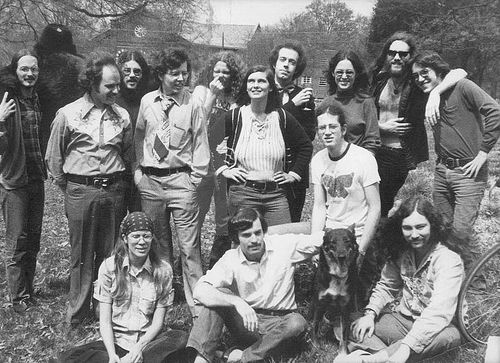In a meeting yesterday, somebody on the IRC shared links to “Re-identification of home addresses from spatial locations anonymized by Gaussian skew” and “Bregman divergences in the (m x k)-partitioning problem“, from Science Digest. Sez the abstract of the latter,
A method of fixed cardinality partition is examined. This methodology can be applied on many problems, such as the confidentiality protection, in which the protection of confidential information has to be ensured, while preserving the information content of the data. The basic feature of the technique is to aggregate the data into m groups of small fixed size k, by minimizing Bregman divergences. It is shown that, in the case of non-uniform probability measures the groups of the optimal solution are not necessarily separated by hyperplanes, while with uniform they are. After the creation of an initial partition on a real data-set, an algorithm, based on two different Bregman divergences, is proposed and applied. This methodology provides us with a very fast and efficient tool to construct a near-optimum partition for the (m×k)-partitioning problem.
Keywords: Confidentiality; Data masking; Fixed cardinality partitioning; Fixed size micro-aggregation; Bregman divergences; Pythagorean property; Convex partition
What’s extra wacky is that I actually spent time diving into this stuff, even though it’s about forty thousand leagues over my head. Still, it was fun trying to remember all that math I barely learned too long ago.
As I recall, the highest grade I ever got in high school math was a C. That was in Geometry. (Hey, I’m a visual guy.) The only math course I took in college was Statistics. The teacher and I couldn’t stand each other, and I dropped out, or thought I did. Turns out I was too late doing that and the guy gave me an F.
But I kept the book, which served me well years later when I was studying Arbitron’s ratings for radio stations. To my surprise, I actually liked the subject, and used what I learned from the book to develop algorithms for factoring out seasonal variations in station AQH (average quarter hour) shares, to aid in predicting which stations would do what in the next “book”. In addition to racking up billable hours for my company, and helping our client station sell advertising, I was able to win bets with friends in the radio business.
The biggest bet of all was that WFXC, the station with the weakest signal in the Raleigh-Durham metro, would kick ass in the first book after its programming went “urban” (that’s radio talk for “black”). The math was easy. The market was about 40% black, and no other FM stations addressed that population.
I won. Foxy was #1 in its first book. (And it’s still doing well, 2+ decades later.)
As it happens, WFXC “Foxy 107” (a name I suggested to the owners before they picked the call letters, though I don’t know if I was the first to come up with that) was consulted at the time by Dean Landsman, whom I didn’t know at the time. We became good friends years later when we both haunted the late Compuserve’s late Broadcast Professionals Forum, which was run by Mary Lu Wehmeier, now a friend as well. She was the “Sysop” for that forum, where I occasionally came off the bench to help. Running the Sysop Forum was Jonathan Zittrain, who later helped found the Berkman Center, and now stars as a professor at Harvard Law School. Making things even more circular, Dean is now a valuable and diligent contributor to ProjectVRM. Dean, a closet math whiz, made a living for many years doing in-depth work around radio station ratings. I’ll be he knows, or could puzzle out, the quoted text at the top of this post.
By the way, my nickname is the fossil remnant of a radio persona called “Doctor Dave”, featured on WDBS, the prior incarnation of WFXC, which is still around (now with a somewhat better transmitter, and a second and much larger signal on another channel, covering the east side of the market). When I was there, in the mid-’70s, WDBS was owned by Duke University and had awful ratings to go with its awful signal. But it was a great little station. Still friends with folks from those days too.
Ah, I found the picture I was looking for, now at the top of this post. That was the WDBS staff in 1975, I’m guessing. I’m the guy with the wide tie and the narrow shoulders in the back row. There are many missing folks too. I’d love to follow this digressive path, but have too much work to do. At least I’ve left plenty of link and tag bait. 🙂

Leave a Reply